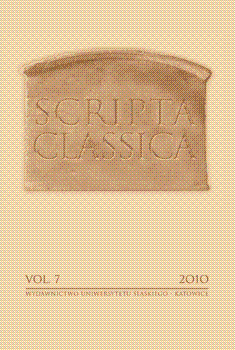The Eleusinian Themes in Plato’s "Phaedrus"
The Eleusinian Themes in Plato’s "Phaedrus"
Author(s): Katarzyna KołakowskaSubject(s): Language and Literature Studies
Published by: Wydawnictwo Uniwersytetu Śląskiego
Keywords: Plato; "Phaedrus"; religion; Eleusinain Mystery; philosophy
Summary/Abstract: Plato’s "Phaedrus" can be considered on two levels. First is literal and the second is mystical. The construction of dialogue is based on Eleusinian Mysteries. Each part of "Phaedrus" suits each part of this mistery, including "visio beatifica". It could be noticed from the very first beginning of the dialogue: place where Socrates is taken by Phaedrus is the same where the Little Eleusinian usually startes — in Agrai. We can notice the similarities during the whole dialogue. But Platon didn’t say a word which can suggest the relation between "Phaedrus" and Mysteries. It is easy to explain. Nobody can talk about Mysteries during 5th/4th century BC. It was kind of "arreton". But this similarities are obvious and prove how important religion was to Plato.
Journal: Scripta Classica
- Issue Year: 2010
- Issue No: 7
- Page Range: 43-50
- Page Count: 8
- Language: English

